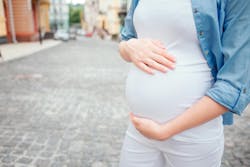Long-term maternal exposure to common air pollutants, both before and after childbirth, has been linked to increased risk of postpartum depression for mothers – with symptoms ranging from anxiety and irritability to suicide – and may lead to cognitive, emotional, psychological and behavioral impairments in their infants, according to research led by the University of California, Irvine.
The study, recently published online in JAMA Network Open, is one of the first to examine the association between environmental factors and this clinical disorder that affects approximately 10 to 20 percent of women after childbirth worldwide.
The team conducted a retrospective cohort study of 340,679 women included in the Kaiser Permanente Southern California electronic health records who had live singleton births at KPSC facilities between Jan. 1, 2008, and Dec. 31, 2016, with a mean age of 30 years. Ambient air exposures were assessed based on maternal residential addresses using monthly averages of ozone; nitrogen oxides; particulate matter less than or equal to 10 micrometers, such as dust; and fine particulate matter less than or equal to 2.5 micrometers, which contains a mixture of chemicals such as sulfate, nitrate and black carbon.
Overall, a higher risk of PPD was associated with exposure to ozone during the entire pregnancy and postpartum period and with exposure to constituents of fine particulate matter – including organic matter and black carbon – during late pregnancy and postpartum. Findings also showed that specific demographics were most vulnerable to ante- and postpartum exposures to these common pollutants, including mothers aged 25 to 34, African American or Hispanic women, those with higher education and those who were underweight.

